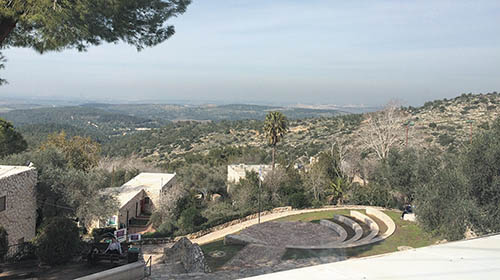
Pesach is a joyous whirlwind. Once you have gotten through the preparations, and the chag itself actually starts, the streets of Teaneck are filled with people walking from house to house, going to and from shul, while the vegetarians among us are wandering like zombies down the wagon wheel–inspired streets trying to figure out how to survive when all our food staples (pasta, beans, rice, Utz Party Mix etc.) are off limits.
The decision to be public both as a Jew and especially as a supporter of Israel has consequences. As I have written here before, people who once simply saw you as a fellow human being now see you as somehow different. I am now much more often asked by people who I am “friends” with on social media to defend my views. They want to know things like, what is Passover about? They know about the seder and some vague notions about Egypt and slavery, and they make fun of our wine, but otherwise, they know very little.
Mostly they want to know why I would continue to follow these ancient laws. So much has changed, and we have evolved so much, why continue to emulate my ancient ancestors? Boiled down, they want to know why the person they previously knew as fully rational, Ivy-league educated, and otherwise thoughtful has within him this surprising “tribal” element. The mild revulsion they feel is somewhat tempered by a kind of respect they have for the fact that these traditions are so ancient and that my ancestors have followed them for millennia.
This has forced me more so than in the past to think thematically about what I do and why I do it when it comes to religious practice. How have we managed to maintain these practices and traditions and beliefs? Why have all the other religious groups from ancient times disappeared and we have survived? Why is this people different from all other peoples?
Others far more skilled than I (and who have more than 800 words to do it) have answered these questions in compelling ways. Here is my thought. On Yom Tov, near the beginning of Mussaf, we say something that is quite striking. We say to Hashem that it is because of our sins that we have been exiled from our homeland and from Zion. No people in history has a better argument to make that we have been singled out for mistreatment. It’s not just a self-pitying slogan. In each generation, someone actually does rise up against us to destroy us. We could wallow in that self-pity, and we certainly sometimes do. But much more importantly, we take responsibility for our actions.
And it is not just that our ancestors sinned. It is that those sins are openly discussed in our texts. We show everyone what our ancestors did. Within days of the most extraordinary revelation in the history of the world, our ancestors sinned. And there it is on parchment, for all to see.
What has allowed us to survive these thousands of years, among other things (including the active hand of the divine in our history) is our sense of responsibility for our own actions. Jews have lasted as long as we have in part because we do not ultimately blame anyone else for our suffering. This is despite the many tragedies that have befallen us. Other peoples fall victim to victimhood. It defines them. Not so with us. In each generation not only have we been hunted down, but we have gotten back up.
My father spoke at one of my graduations many years ago. It was to a predominantly non-Jewish crowd. He chose for his theme a stark difference between the full-fledged human beings who populate our Tanach and the characters who populate some other religions’ books. Even our Avos and Imahos, whose acts we revere and seek to emulate, were in many ways deeply imperfect people. We do not have saints in our religion the way others do. Judaism requires one to follow a strict code of ethics and behavior. Judaism also accepts people as imperfect, while simultaneously expecting us to strive for perfection. We accept humans as they are. Our great books present those people as people, not as demi-gods incapable of sin or doubt or anger. These are human beings who sometimes make bad choices. True, those seemingly bad choices in many cases end up leading to the greatest moments in our history, such as Jacob’s seemingly unconscionable favoritism of Joseph ultimately leading to the creation of the Jewish people.
Come to think of it, one (false) way to interpret the passage from Mussaf I discuss above is that it is because of our sins that we live here in Jersey. If your non-Jewish friends ask you about the basics of Judaism, perhaps that’s a good way to start.
By Akiva J. Covitz
Akiva J. Covitz, PhD, is Executive Vice President of Yeshivot and Ulpanot Bnei Akiva’s North American office. He teaches at Yeshiva University, and previously served at Harvard Law School as Associate Dean and a member of the faculty, and as Vice President of the online learning company edX.










